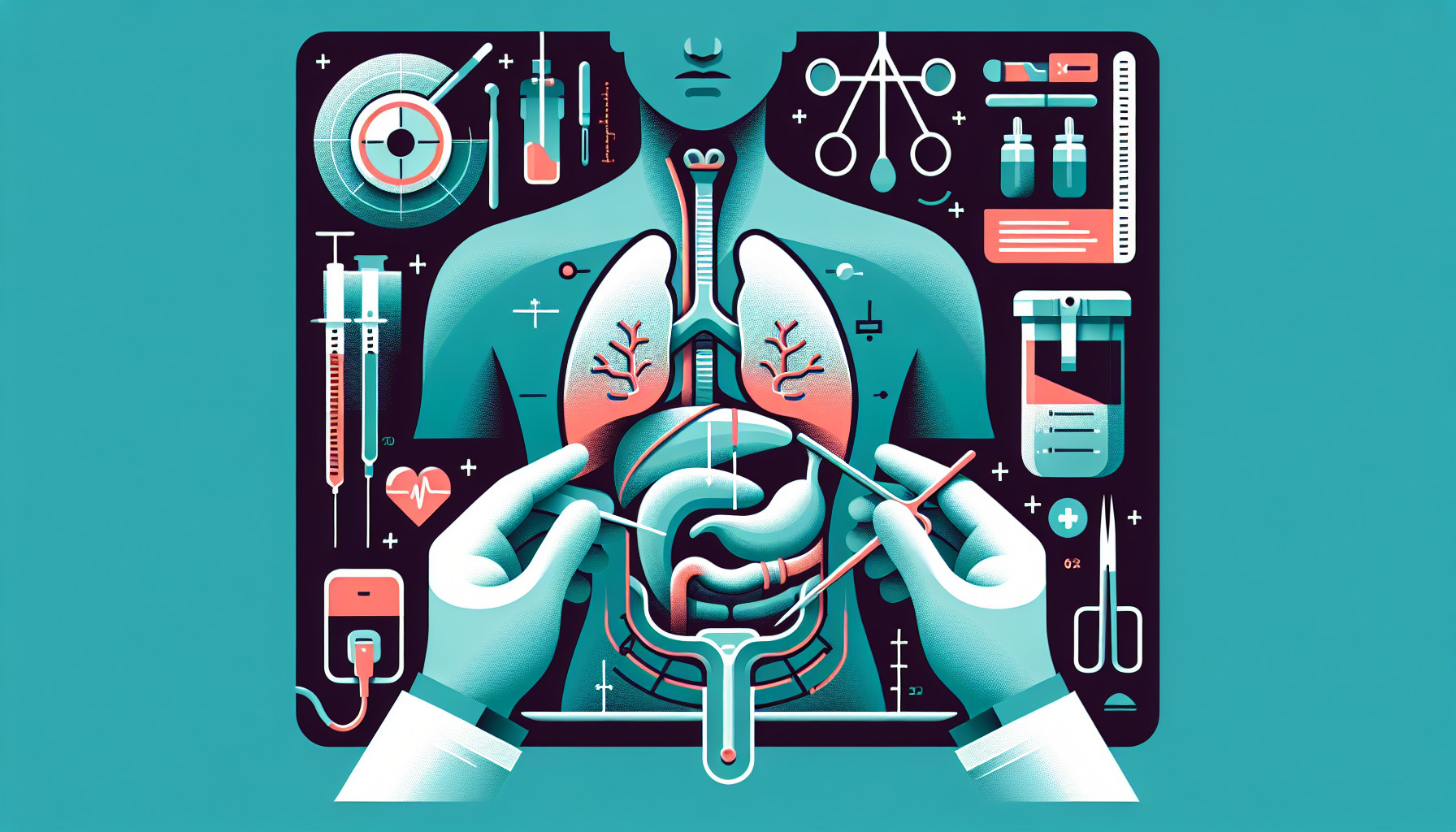Our Summary
This research paper discusses the increasing growth in pancreas transplants, particularly for select patients with type 2 diabetes. It references two studies in the latest issue of Clinical Transplantation that explore this relationship. The paper also highlights the challenges of understanding the impact of race on the results of pancreas transplants. Furthermore, it emphasizes some key ideas concerning fairness in organ transplantation.
FAQs
- Which patients are being considered for pancreas transplants according to the research paper?
- What do the studies in the Clinical Transplantation journal suggest about the relationship between pancreas transplants and type 2 diabetes?
- What challenges does the paper identify in understanding the impact of race on the results of pancreas transplants?
Doctor’s Tip
One helpful tip a doctor might tell a patient about pancreas transplant is to follow a strict medication regimen post-transplant to prevent rejection of the new organ. It is important to take immunosuppressant medications as prescribed and attend all follow-up appointments to monitor the success of the transplant. Additionally, maintaining a healthy lifestyle through diet and exercise can help support the function of the transplanted pancreas.
Suitable For
Patients who are typically recommended for pancreas transplant include those with type 1 diabetes who have severe complications such as kidney failure, vision problems, nerve damage, or difficulty controlling blood sugar levels despite medical treatment. Additionally, patients with type 2 diabetes who have failed to respond to other treatments or have complications such as kidney failure may also be considered for a pancreas transplant. It is important for patients to undergo a thorough evaluation by a transplant team to determine if they are suitable candidates for the procedure.
Timeline
Before pancreas transplant:
- Patient is diagnosed with type 1 diabetes or advanced type 2 diabetes with complications that can be improved with a pancreas transplant.
- Patient undergoes thorough evaluation by a transplant team to determine eligibility for a pancreas transplant.
- Patient is placed on the transplant waiting list and waits for a suitable donor pancreas to become available.
- Patient receives notification of a potential donor match and prepares for surgery.
- Patient undergoes pancreas transplant surgery, which typically lasts several hours.
- Patient is monitored closely in the hospital for any complications or rejection of the new pancreas.
After pancreas transplant:
- Patient remains in the hospital for several days to weeks post-transplant for observation and recovery.
- Patient begins taking immunosuppressive medications to prevent rejection of the new pancreas.
- Patient undergoes regular follow-up appointments with the transplant team to monitor the function of the new pancreas and adjust medications as needed.
- Patient may need to make lifestyle changes, such as following a strict diet and exercise regimen, to maintain the health of the new pancreas.
- Patient may experience complications or rejection episodes that require additional treatment or adjustments to the transplant plan.
- With successful transplant, patient may experience improved blood sugar control, reduced risk of complications from diabetes, and improved quality of life.
What to Ask Your Doctor
- Am I a good candidate for a pancreas transplant?
- What are the benefits and risks associated with a pancreas transplant?
- How long is the waiting period for a pancreas transplant?
- What is the success rate of pancreas transplants in patients with my medical history?
- What are the potential complications and side effects of a pancreas transplant?
- How will a pancreas transplant impact my overall quality of life?
- How long is the recovery process after a pancreas transplant?
- What are the long-term outcomes and follow-up care required after a pancreas transplant?
- Are there any alternative treatments or therapies that I should consider before opting for a pancreas transplant?
- How does race impact the results and outcomes of pancreas transplants, and how will this be taken into consideration in my case?
Reference
Authors: McElroy L, Fridell JA. Journal: Clin Transplant. 2022 Apr;36(4):e14615. doi: 10.1111/ctr.14615. Epub 2022 Feb 27. PMID: 35171509
